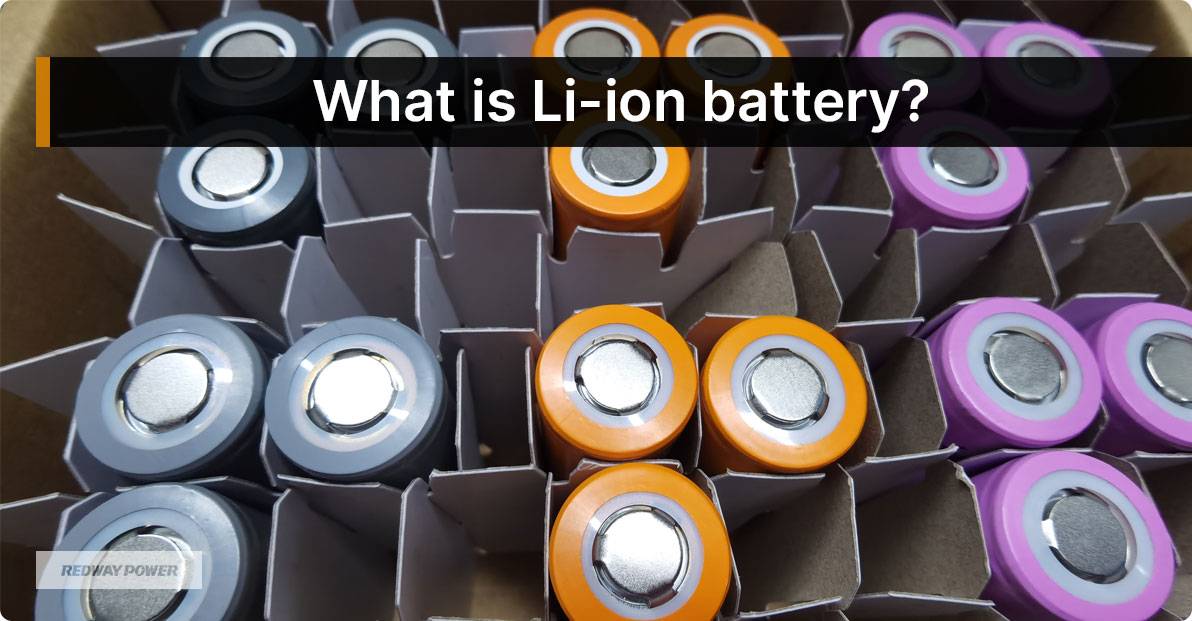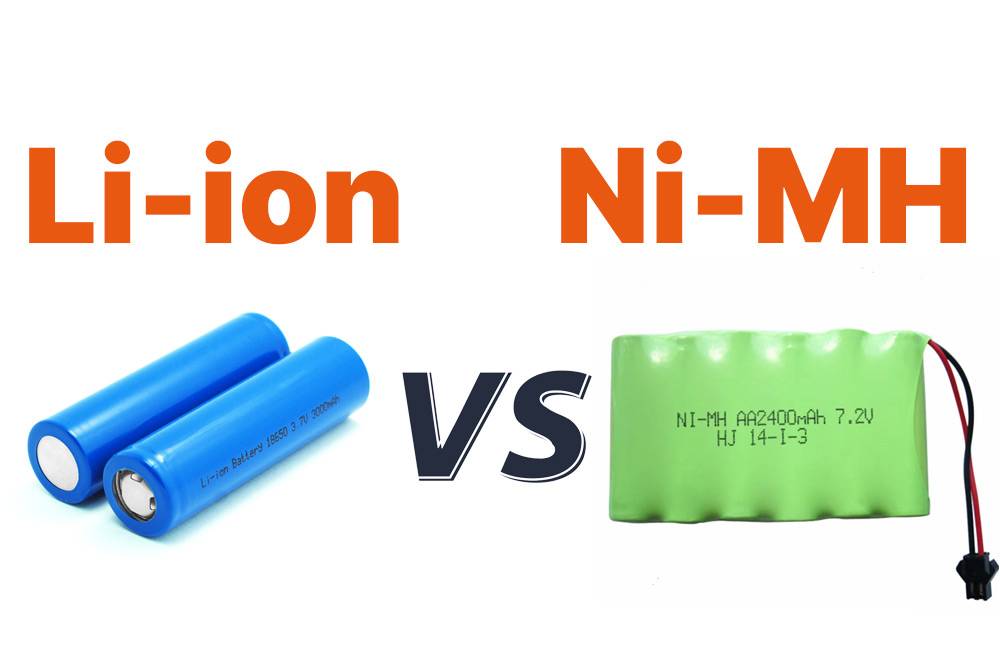Li-ion batteries offer high energy density and longer lifespan, ideal for power-hungry devices like smartphones. Ni-MH batteries, more affordable and recyclable, suit low-drain gadgets like remotes. Safety varies; both require proper handling. Choose based on needs and safety precautions.
What is Li-ion battery?
Discover the Li-ion battery, a popular rechargeable power source for gadgets. Li-ion batteries use lithium ions to store energy compactly, making them perfect for smartphones and laptops. They hold charges longer, with minimal self-discharge rates, ensuring reliability. Their lightweight design makes them a top choice for modern devices.
Li-ion batteries are rechargeable power sources prevalent in smartphones and laptops. Their lithium-ion technology allows for high energy density, enabling compact designs. With longer shelf life and minimal self-discharge rates, they offer reliability for everyday use. Popular for their efficiency, Li-ion batteries power various electronics, from portable devices to electric vehicles, driving technological advancements. They outshine other battery types due to their compactness and ability to retain charge over time. In essence, Li-ion batteries are integral to modern life, providing the energy needed to keep our gadgets running smoothly and efficiently, making them a preferred choice for electronic devices across industries.

What is Ni-MH battery?
Ni-MH batteries, short for Nickel Metal Hydride batteries, are rechargeable power sources widely used in electronics. They boast higher energy densities than older nickel-cadmium batteries, storing more power in a smaller size. Ideal for portable gadgets like cameras and toys, they offer stable voltage output and low self-discharge rates, ensuring consistent performance. Ni-MH batteries provide reliable and efficient power for everyday electronics, making them a popular choice for various gadgets and appliances.
Advantages and disadvantages of Li-ion battery?
Li-ion batteries are great for phones and laptops because they’re lightweight and last long. They don’t lose power quickly when not in use. But they can cost more to make, and if not used right, they might get too hot. Despite these issues, their benefits usually outweigh the drawbacks, especially for everyday use.
Let’s break it down:
- Li-ion Batteries Benefits:
- Lightweight: Li-ion batteries are light, making them perfect for devices like phones and laptops.
- Long-lasting: They keep power for a long time even when not in use, ensuring your devices stay charged.
- Convenient: With low self-discharge rates, they’re handy for occasional use.
- Drawbacks:
- Costly: Making Li-ion batteries can be expensive, which might reflect in the price of products.
- Safety Concerns: Overcharging or overheating can pose risks, needing careful handling.
- Conclusion:
- Despite the downsides, Li-ion batteries are popular because their benefits usually outweigh the drawbacks, especially for everyday gadgets.
Advantages and disadvantages of Ni-MH battery?
Ni-MH batteries, also known as Nickel-Metal Hydride batteries, offer affordability and higher energy density compared to older battery types. While they’re cheaper and reliable for various gadgets, they have lower energy capacity and lose charge over time. Despite these drawbacks, they remain popular in electronics due to their cost-effectiveness and dependability.
Let’s explore these aspects to understand why they’re popular despite their limitations.
- Advantages:
- Affordability: Ni-MH batteries are budget-friendly, making them accessible to many consumers.
- Higher Energy Density: Compared to older battery models, Ni-MH batteries offer greater energy storage in a compact size.
- Disadvantages:
- Lower Energy Capacity: Despite their cost-effectiveness, Ni-MH batteries have a reduced energy capacity compared to some alternatives.
- Self-Discharge Rate: Ni-MH batteries lose charge over time even when not in use, which can be inconvenient for some users.
- Usage and Popularity:
- Widespread Use: Despite their drawbacks, Ni-MH batteries are widely used in various electronic devices due to their reliability and affordability.
- Preference: For many consumers, the benefits of affordability and reliability outweigh the limitations of Ni-MH batteries, making them a preferred choice for everyday gadgets.
In summary, Ni-MH batteries offer a cost-effective solution with moderate energy storage capacity, making them suitable for a wide range of applications despite their gradual discharge over time.
Key differences between Li-ion and Ni-MH batteries
Discovering the differences between Li-ion and Ni-MH batteries is essential. Li-ion batteries are smaller, lighter, and hold more power, perfect for smartphones and laptops. In contrast, Ni-MH batteries are cheaper, with lower energy density but shorter lifespan. Li-ion batteries have less environmental impact due to fewer toxic materials. Both can be recycled for sustainability.
Here’s a simple breakdown:
- Li-ion vs. Ni-MH: Li-ion batteries are smaller and lighter, packing more power, perfect for smartphones and laptops. Ni-MH batteries, on the other hand, are cheaper but have lower energy density and a shorter lifespan.
- Self-Discharge Rate: Li-ion batteries hold their charge longer when not in use, whereas Ni-MH batteries discharge faster.
- Environmental Impact: Li-ion batteries contain fewer toxic materials, making them more eco-friendly. However, both types can be recycled to reduce environmental harm.
Understanding these differences helps in making informed choices for various electronic devices.
Common uses for Li-ion and Ni-MH batteries
Discover the typical uses of Li-ion and Ni-MH batteries:
- Li-ion Batteries:
- Popular Devices: Power smartphones, laptops, and tablets.
- Gadgets: Used in digital cameras, PDAs, and watches.
- Portable Power: Found in portable chargers and personal mobility devices.
- Energy Storage: Used in solar energy storage systems and UPS for emergencies.
- Ni-MH Batteries:
- Everyday Devices: Power remote controls, flashlights, and cordless tools.
- Hybrid Vehicles: Some hybrid cars like the Toyota Highlander use Ni-MH batteries.
Both batteries serve crucial roles in daily life, from powering gadgets to providing backup energy!
Factors to consider when choosing between Li-ion and Ni-MH batteries
When deciding between Li-ion and Ni-MH batteries, consider usage needs. Li-ion is great for power-hungry gadgets like phones, while Ni-MH suits lower-drain devices like remotes. Li-ion charges fast, lasts longer, but costs more. Ni-MH needs longer charge times but is cheaper upfront. Li-ion is eco-friendlier too. Consider these factors to pick the right battery.
Let’s break it down:
- Usage Needs: Li-ion batteries are best for power-hungry devices like smartphones and laptops due to their high energy density. Meanwhile, Ni-MH batteries are suitable for lower-drain devices such as remote controls and flashlights.
- Charging Requirements: Li-ion batteries charge quickly and don’t suffer from memory effect, but Ni-MH batteries may require longer charging times and occasional full discharges.
- Cost and Environmental Impact: Li-ion batteries are initially more expensive but have a longer lifespan and are more eco-friendly. Ni-MH batteries are cheaper upfront but may need replacement sooner and have a higher environmental impact.
Consider these factors carefully to make the right choice for your needs.
Maintenance and safety tips for both types of batteries
Ensuring the safety and longevity of your Li-ion and Ni-MH batteries is crucial. Here are some essential tips:
- Storage Conditions: Keep batteries in a cool, dry place away from direct sunlight and extreme temperatures to prevent damage and extend their lifespan.
- Regular Inspection: Check batteries for leaks or corrosion regularly. If you notice any damage, replace the battery promptly to avoid safety hazards.
- Charging Practices: Avoid overcharging batteries and use the correct charger for each type to ensure safe and efficient charging.
Following these maintenance tips can help you use your batteries safely and effectively for a longer time.
Conclusion: Which battery is best for your needs?
Choosing between Li-ion and Ni-MH batteries depends on your specific needs:
- Li-ion Batteries:
- High energy density and longer lifespan.
- Best for power-hungry devices like smartphones and laptops.
- Lightweight and ideal for electric vehicles.
- Ni-MH Batteries:
- More affordable and eco-friendly.
- Commonly used in household electronics.
- Suitable for low-drain devices like remote controls and toys.
Consider factors like cost, performance, charging habits, and environmental impact to make the right choice for your needs. Weighing these aspects can help you decide which battery type suits you best.
Is Ni-MH battery safer than Li-ion battery?
Ni-MH batteries are generally safer than Li-ion batteries due to their lower risk of overheating. They’re eco-friendly and widely available. Li-ion batteries, while more compact, require careful handling to prevent overheating and environmental harm. Both have their pros and cons, so always follow safety guidelines when using them.
Let’s break down the safety differences between Ni-MH and Li-ion batteries:
- Ni-MH Batteries:
- Safer Chemistry: Ni-MH batteries are safer because they don’t contain toxic materials like cadmium.
- Lower Risk of Overheating: They’re less likely to overheat, making them a safer choice for everyday use.
- Eco-Friendly: Ni-MH batteries are better for the environment and widely available.
- Li-ion Batteries:
- Higher Energy Density: Li-ion batteries have more energy in a smaller package, but this can lead to safety concerns.
- Sensitive to Overheating: They require careful handling to avoid overheating and potential hazards.
- Environmental Impact: Li-ion batteries are less eco-friendly and need proper disposal and recycling.
Both types have their advantages and drawbacks, so it’s essential to handle them with care and follow safety guidelines to ensure safe use.
Can I charge a nimh battery with a li-ion charger?
No. Charging a Ni-MH battery with a Li-ion charger is unsafe. Li-ion chargers have higher voltage, risking damage to the Ni-MH battery. Each battery type requires specific charging algorithms, and using the wrong charger can cause overheating or explosion. Always use the correct charger for your battery type to stay safe!
Here’s why:
- Different Voltage: Li-ion chargers have higher voltage, which can damage Ni-MH batteries with lower voltage.
- Charging Algorithms: Each battery type needs a specific charger with the right charging algorithms.
- Safety Risks: Using the wrong charger can cause overheating or explosion. Always use the correct charger for your battery type to stay safe!

